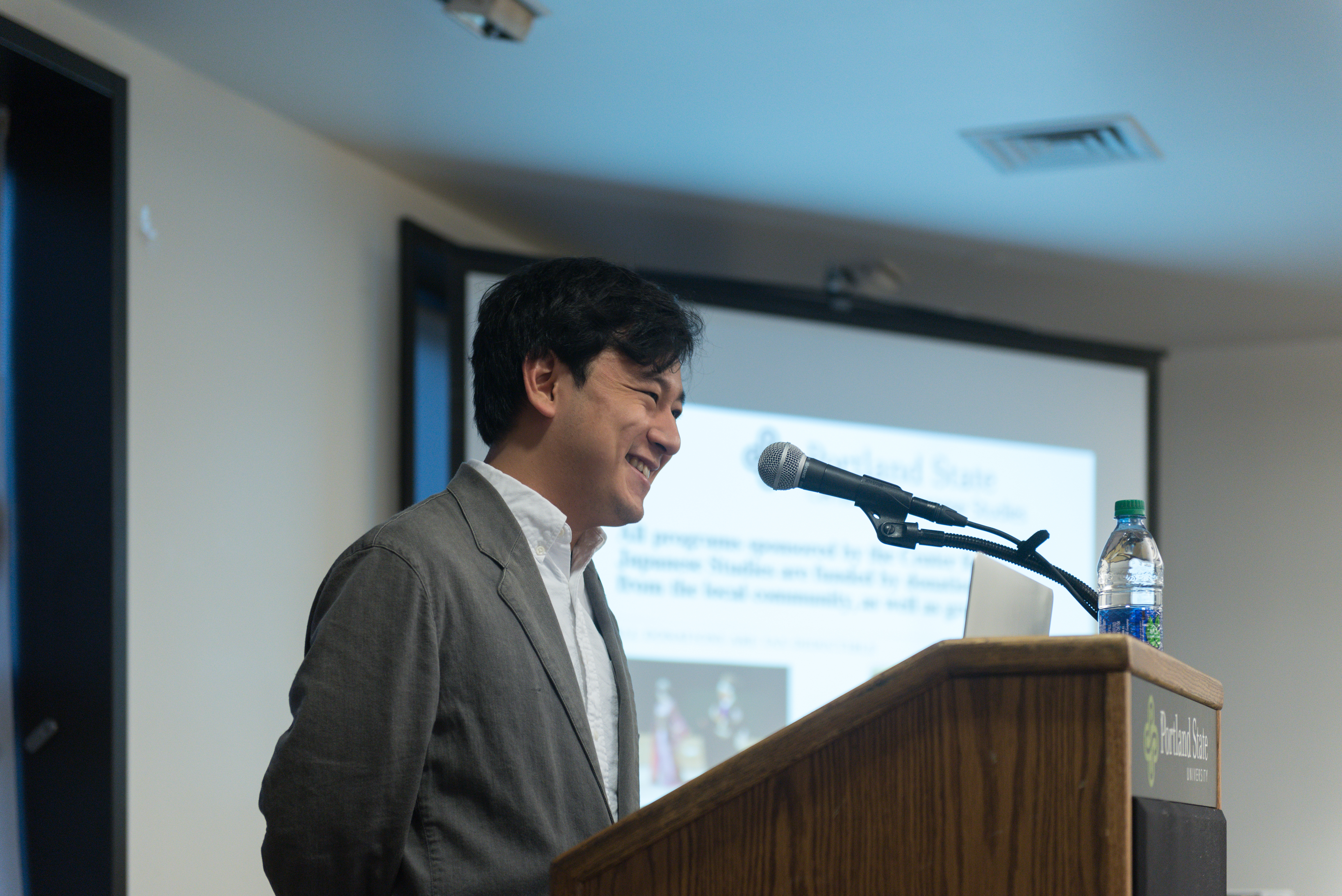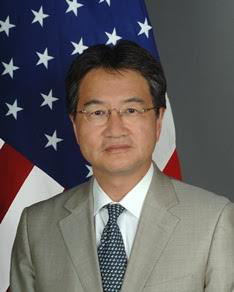Japanese film director Ryutaro Nakagawa came to Portland State on Oct. 11, the opening day for the university’s two-week festival, “Portland State of Mind,” which showcases symposiums, lectures, film screenings, sporting events and more. Nakagawa, a poet and the youngest director selected by the Tokyo International Film Festival two years in a row for his films August in Tokyo and Tokyo Sunrise, shared the importance of non-major feature films and how they affect society in his presentation, “Japanese Films in the Modern Era.”
Nakagawa began writing poetry and love letters at the age of 16, introducing himself to a world full of emotion and memory. While referencing the dying tradition of Japanese love poems, Nakagawa spoke to his fascination with emotions as an extension of words. “I then realized that words were a way to express yourself or a way to anchor memories in place, but I learned…words are a powerful tool to discover your emotions,” Nakagawa said via an interpreter.
Realizing poetry would not financially support him, Nakagawa began looking into film and directing. When he started his career as a film director, he and his team endeavored to share stories, which can be universally interpreted. “The goal is not to become a film director, it is to create work that has a meaning and purpose,” said Nakagawa.
Along with his other award-winning films, Nakagawa’s most recent film Summer Blooms (2007) was awarded the International Critics Prize at the 29th Moscow International Film Festival. The film’s protagonist is Hatsumi Takimoto, a young woman who quits her job as a teacher and begins working part time at her family’s cafe, thus finding solidarity in her life. After losing her husband three years prior, she then finds the strength to become a teacher once again. Through his unique storytelling ability, Nakagawa is able to narrate the difficult process of dealing with loss, showing the sorrow and emotion that is built years after a loved one’s passing.
Nakagawa’s films feature a consistent theme surrounding death, inspired by the passing of a close friend. “With his death, I made one promise that is: As long as my life goes on, I will continue to shoot films.” With the memory of his late friend, Nakagawa continues to direct films in order to convey messages that resonate with the human condition.






